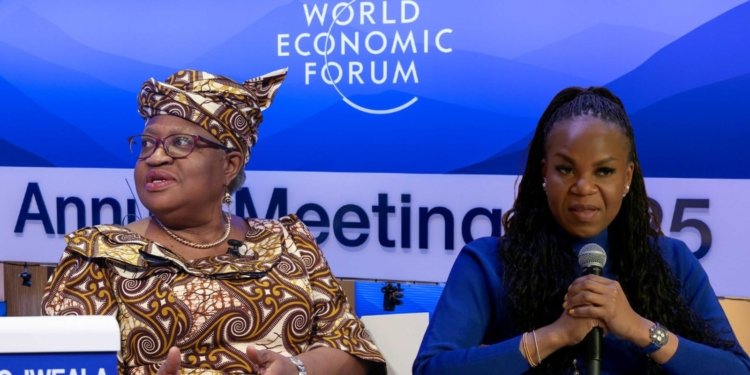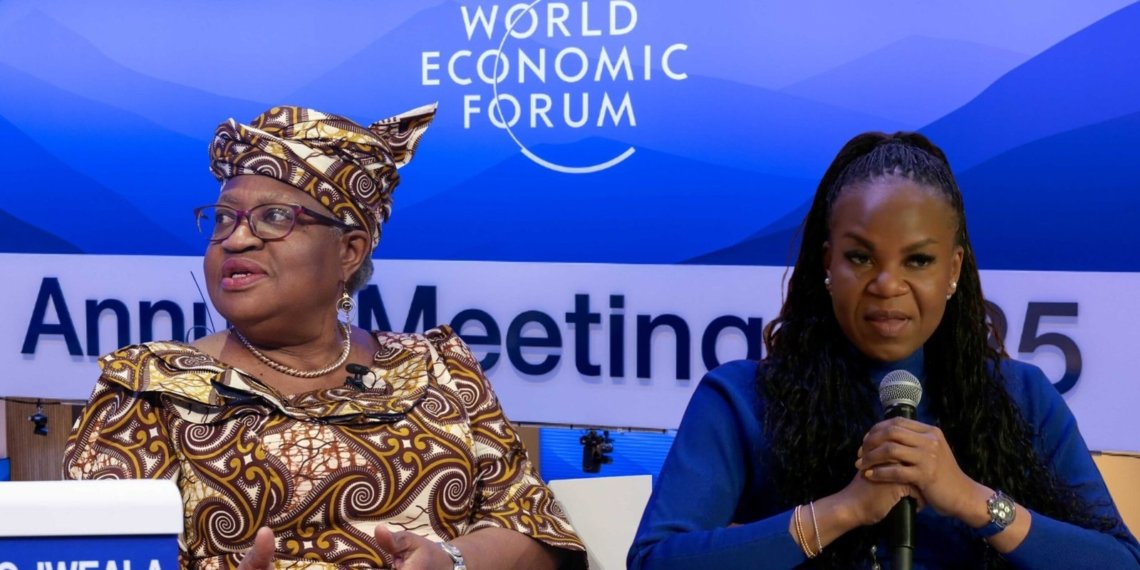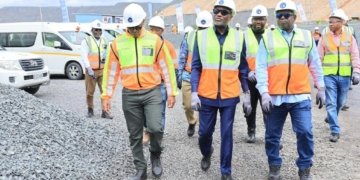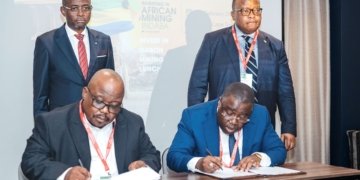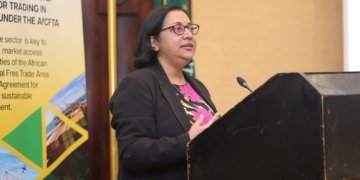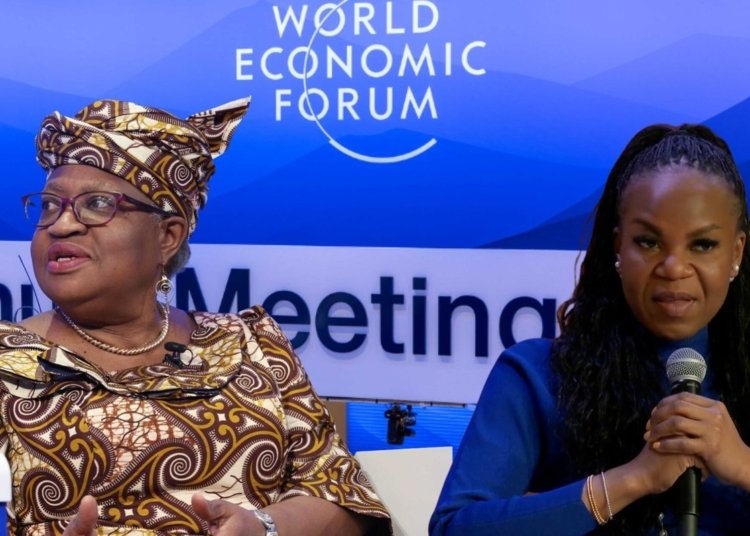DAVOS, Switzerland (BG) — Africa stands on the verge of a transformative opportunity to industrialize sustainably, harnessing its vast clean energy resources while driving global efforts to combat climate change, according to world leaders and experts speaking at the World Economic Forum in Davos this week.
Ngozi Okonjo-Iweala, Director-General of the World Trade Organization, highlighted the continent’s untapped potential in renewable energy during a panel discussion titled “Squaring the Climate Trade Circle.”
She proposed an innovative approach to trade that leverages countries’ environmental strengths to reduce global carbon emissions.
“So just as we encourage countries to produce to their economic comparative advantage, you know, you produce what you’re most good at, and you trade it to others who produce what they’re most good at,” Okonjo-Iweala said.
“What if countries could produce what they’re most environmentally good at, those goods that they produce where they can lower carbon emissions, and trade to others that don’t have that, so that overall, we lower carbon emissions for the world?” she added.
The statistics surrounding Africa’s renewable energy potential are staggering. The continent boasts 60% of the world’s solar energy resources, yet it receives a disproportionately small share—just 2%—of global solar investment, according to Okonjo-Iweala.
The WTO chief emphasized the vital role trade plays in advancing clean technology adoption, noting that it is essential for transferring innovations like solar and wind technologies from the places they are developed to the places they are manufactured.
“It’s absolutely clear to me that you could not have the adoption of technology and clean energy the way we would like it in the world without trade,” she said.
Okonjo-Iweala also observed that trade is often taken for granted, which leads people to “neglect some of the benefits that trade brings” in facilitating the global shift to renewable energy.
Industrializing With Clean Energy
Damilola Ogunbiyi, the United Nations Special Representative for Sustainable Energy for All, echoed Okonjo-Iweala’s vision of Africa as a global hub for green energy.
Speaking at a separate panel titled “Industrial Decarbonization as a Growth Strategy,” she emphasized Africa’s unique position to industrialize more cleanly and efficiently than developed nations of the past.
“I don’t think people talk enough about the opportunity of decarbonization,” Ogunbiyi stressed.
She said Africa, which has not fully industrialized, can do it better. “We don’t have to have them industrialize or use old technologies and decarbonize. So, there is a big opportunity, especially for those types of jobs that will be created, for a whole new industry.”
She called for collaboration between governments, businesses, and civil society to ensure Africa can lead in clean energy industrialization.
“That’s why it is so important for governments, civil society, businesses to really work together in this. Not just from what is happening in your own country or what’s happening in Scotland or the U.S. How do you take that capacity building to other countries that are going to do it regardless?” the UN official said.
Africa’s Untapped Renewable Resources
Analysts believe bridging this gap could accelerate economic development while addressing global energy needs sustainably.
Okonjo-Iweala and Ogunbiyi stressed that Africa’s potential to lead in the green economy hinges on international cooperation and investment.
Clean energy projects on the continent could unlock millions of jobs, spur innovation, and position Africa as a leader in the global transition to renewable energy.
By fostering industrialization powered by green energy, African nations could leapfrog traditional, carbon-intensive development paths and establish themselves as competitive players in the global economy.
Ogunbiyi pointed out that Africa’s relatively late industrialization offers an advantage: the chance to build from the ground up with the latest clean technologies.
The Road Ahead
To capitalize on its potential, Africa will need more than just investment. Experts agree that international frameworks must facilitate fair trade in green energy technologies and materials, while governments across the continent must adopt policies that encourage renewable energy adoption.
As the world grapples with the urgent need to lower emissions, Africa’s renewable energy resources and its potential for green industrialization have drawn increasing attention.
Leaders in Davos stressed that unlocking this potential would advance Africa’s economic growth and contribute meaningfully to the global fight against climate change.
As Okonjo-Iweala said, the goal is to leverage trade and green energy for mutual benefit: “You produce what you are most good at… and trade it to others who produce what they’re most good at. What if countries could produce what they are most environmentally good at?”
Africa’s path to green industrialization may still be nascent. Still, global cooperation could redefine the continent’s role in the global economy and secure a more sustainable future for all.
Reporting by the Bantu Gazette from Davos, Switzerland
